The first 13 things a new prepper should take care of
If a disaster strikes, will you be ready and prepared? Here are important things a new prepper should take care of, ensuring that you have a solid foundation.
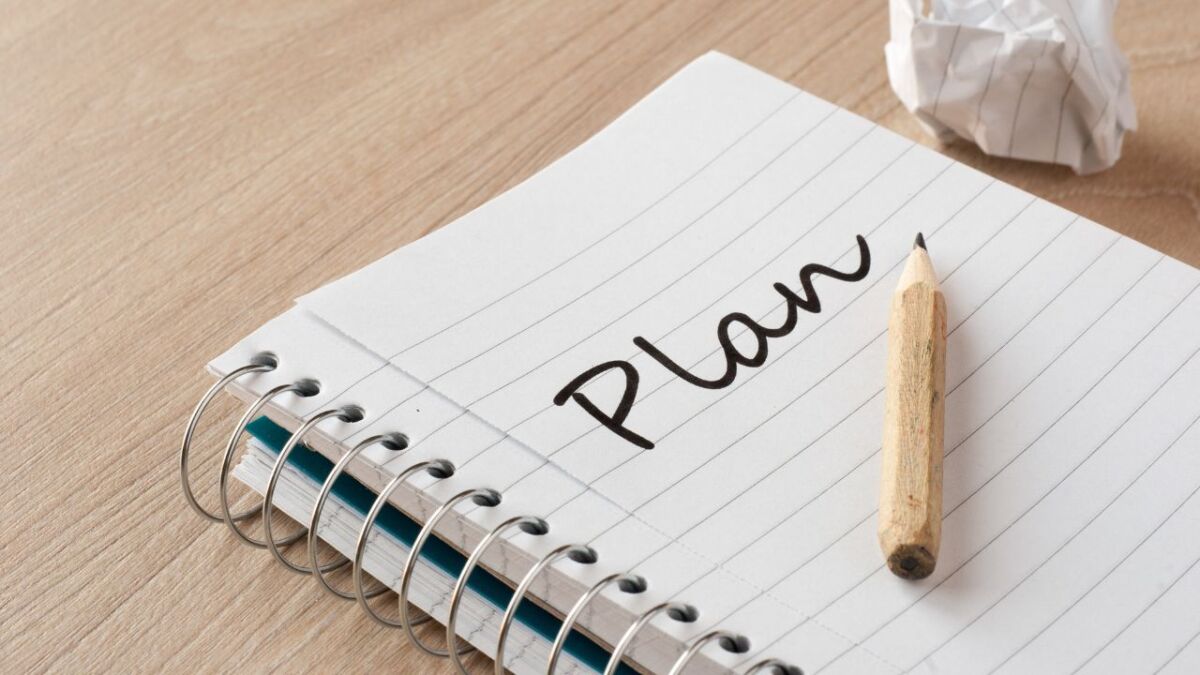

From Martin Gebhardt. Check out my “About me” page.
👉 The key facts from this guide
- Know your situation and prepare for the most likely scenarios in your environment.
- Check your inventory of supplies and utensils and make a list to know what you still need.
- Set priorities and focus on what you really urgently need.
- Clean containers and fill them with water to always have an adequate water supply.
- Prepare an emergency backpack that contains all necessary utensils for the emergency.
- Keep a 72-hour supply of everything you need to survive.
- Note important contacts and create pocket cards with important information.
- Learn skills that you must master in an emergency, such as making tools, hunting and building traps.
- Know the energy supply of your household and make sure your security equipment always works.
- Inform family members and practice with them to prepare them for emergencies.
- Do not be guided by fear and live consciously, realistically and well-prepared.
Prepping poses an apparently insurmountable challenge for most beginners, like perhaps yourself.
Everyone wants to be well-prepared for almost any situation without losing focus, but as they say, practice makes perfect, even in prepping.
It is therefore particularly important for beginners to follow a clear guideline.
And that is what I am providing for you today.
So, in the following article, you will learn 13 things that you should or must do as a novice prepper, to ensure that you are always well-prepared:
1. Know your situation
This point must be mentioned first, as almost everything that follows depends on this factor.
It is obvious that if you want to prepare, you must know exactly what you are preparing for.
Depending on where you are in the world, the circumstances, and risks in the event of a crisis differ. Therefore, you should prepare for the scenarios that are most likely in your region.
Living in the middle of a big city in central Germany, you are less likely to be affected by hurricanes, floods or similar factors.
An electric power outage, or a bitterly cold winter without any way to heat your home, however, are more likely scenarios. Read here for tips on how to keep warm during a heating outage.
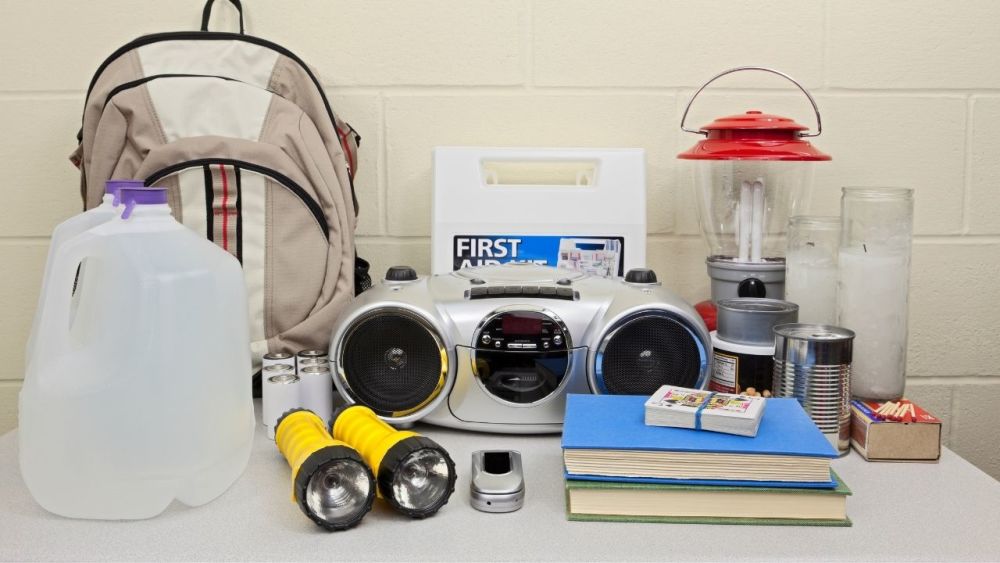
In 2022, many people were especially concerned about having to seek alternatives to gas heating.
Before you even start planning, you should reflect on your situation and ask yourself questions like:
- Which scenarios are likely in my area and which are not?
- What infrastructure is around me?
- Do I only have to take care of myself or others, such as family members?
- To what extent do I want to be prepared and for what periods of time?
In plain language, this means: the more information there is, the better you can prepare.
Don't rush into prepping, but act carefully.
2. Check your inventory
To know what you need, you should first check what you already have.
So go through your supplies and essentials to get an idea of what you still require.
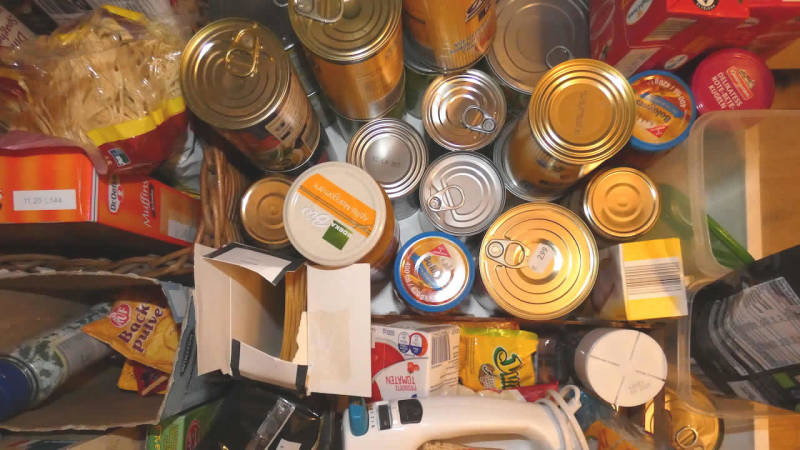
For example, if you have canned food for 3 months, but want to be equipped for 6 months, you should, of course, make adjustments here.
However, if you have already canned food for 6 months, you can use the financial resources provided for it elsewhere.
It is best to create a list in which you record the target and actual inventory of your supplies so that you do not forget anything and always have a long-term view of what you already have in stock and what is needed.
Especially later in your prepping career, you will be grateful for every piece of information that is recorded in writing and can be used for orientation in case of need.
Read also: The ultimate prepper list: What you need to survive (+PDF)
3. Set Priorities
In the previous step, you recorded what your inventory currently provides and what you still require.
First, you should be clear about what you really require urgently!
To achieve this, refer to the questions you answered in the first chapter and go through them again responsibly and carefully.
In plain English, this means: scratch anything unnecessary and set priorities!
So organize and number your list according to urgency. What you really require urgently gets number 1.
Next comes 2, 3, 4, 5, etc. The less urgently you require something, the further back it goes in the number sequence.
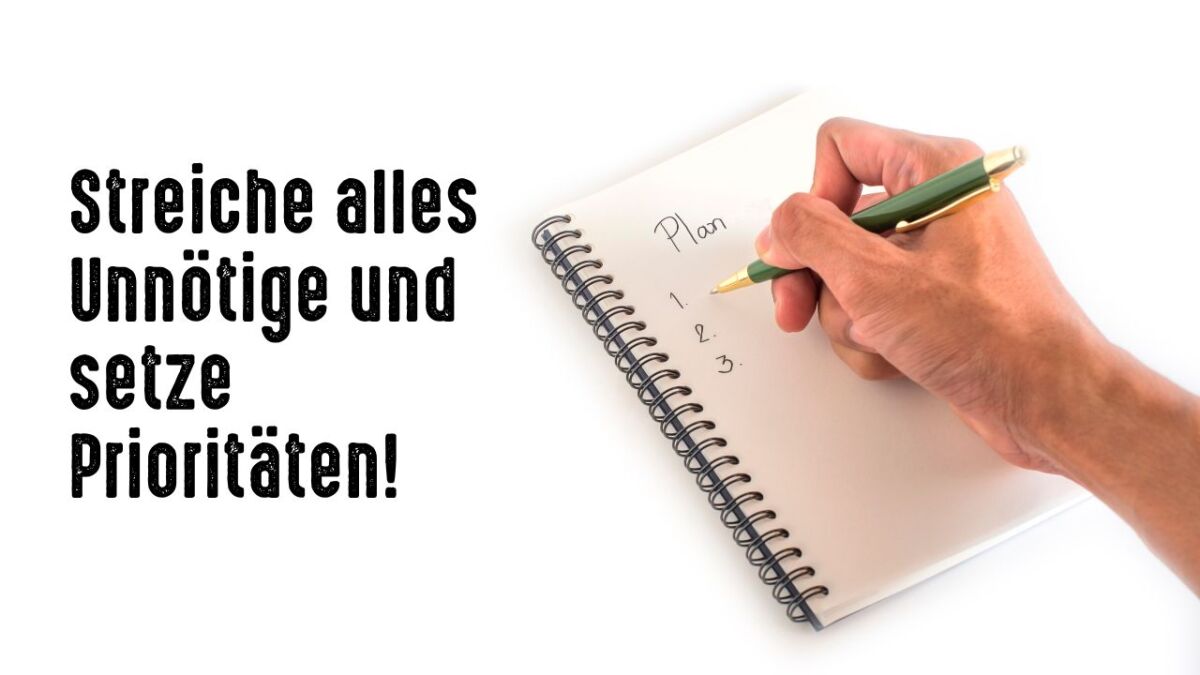
Most new preppers find it very difficult to focus on specific inventory, as they believe everything is equally important.
If you take some time, you will see that this is not true.
Imagine that you are facing a harsh winter without heating or electricity, but you do have enough supplies. How can you best use your resources, such as finances and storage space?
Having all these supplies won't help if you can't withstand the cold.
Don't get me wrong: It's essential to prepare. I know that prepping can be tempting. However, it's essential to remember that resources are not infinite.
4. Clean containers and fill them with water
As you can imagine, water is one of the most critical aspects of prepping.
You need it to drink, for cleaning or even for cooling. So take old bottles or containers, clean them and fill them with water. Furthermore, be aware of how long you can store water.
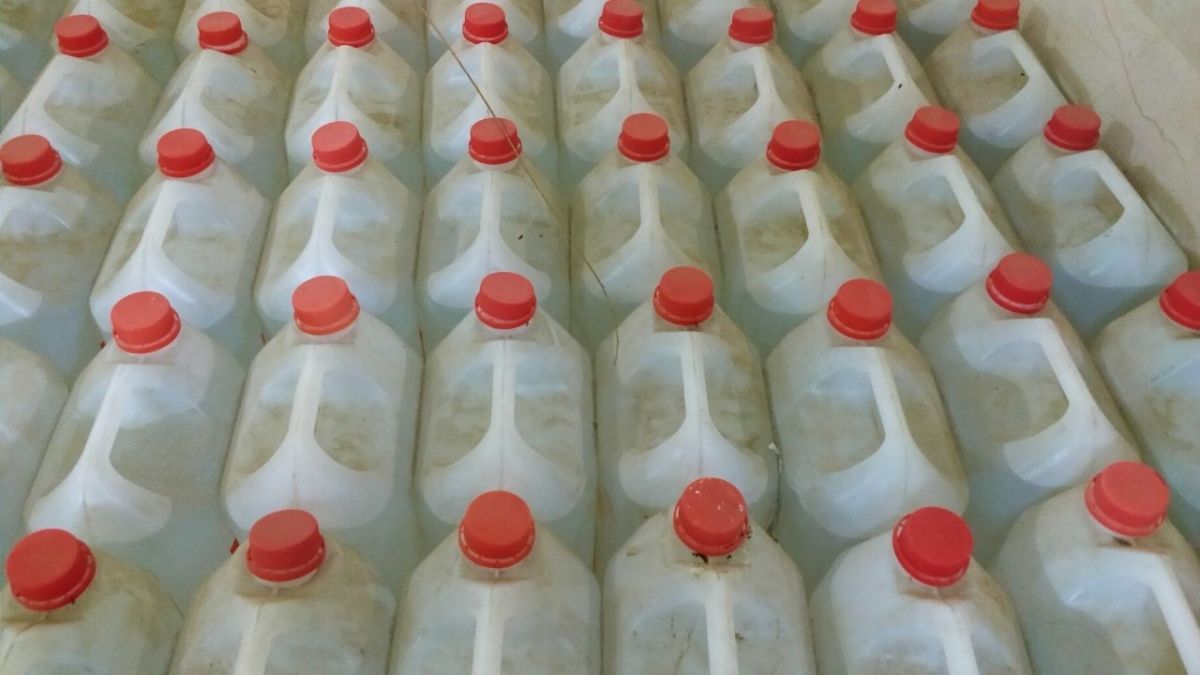
The more water you have stored, the better. If you have space in your fridge, place a few containers there. In case of a power outage, the cold water will also help keep the temperature in your fridge low for longer.
Read here: Calculate water emergency supplies per person - Prepper calculator for crisis preparedness
5. Prepare a "Bug-Out Bag"
Every new prepper should have a bug-out bag or escape kit ready (read my detailed guide on the bug-out bag).
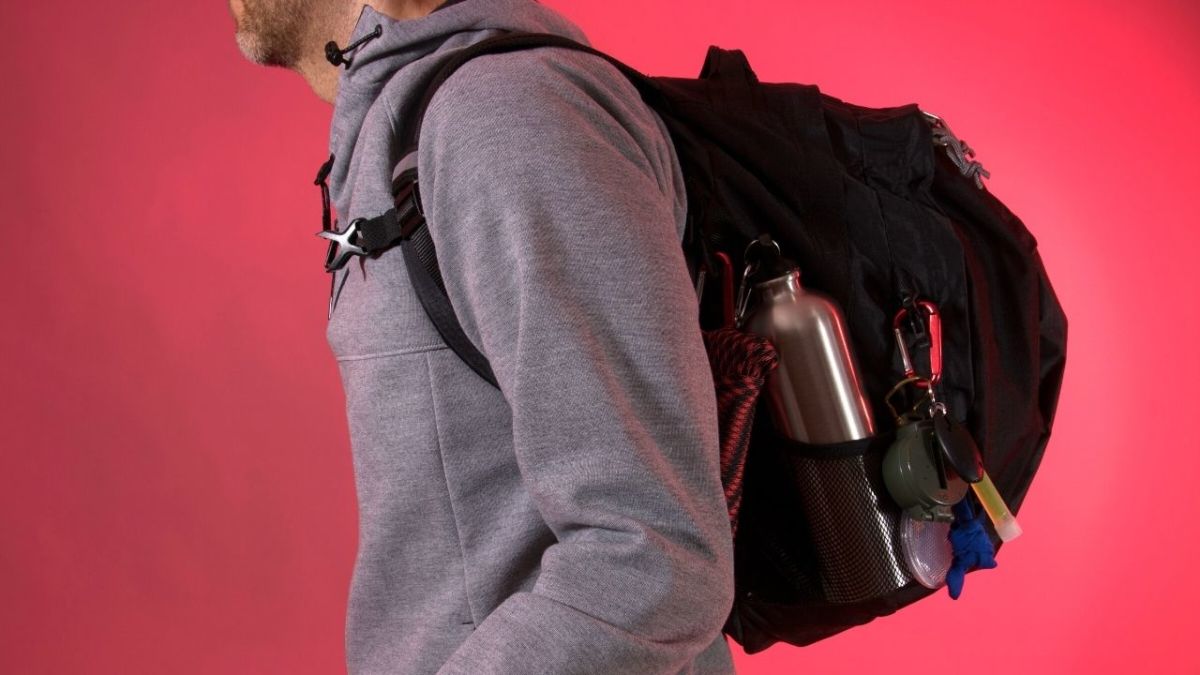
Unexpected scenarios such as natural disasters may require quick action, for which there may not be much preparation time.
Therefore, keep your bug-out bag ready, which allows you to reach the next safe haven unscathed. Ideally, rations for at least 24 hours and some tools should be in it.
By tools, communication, and orientation aids such as radio, walkie-talkie, flashlight, map, and compass are mainly meant. Pocket knives, hatchets, and other tools also serve their purpose.
If you are still unsure about the bug-out bag and need some useful tips and tricks, you can find them here: How to pack your bug-out bag optimally - 9 tips.
6. Keep a 72-hour supply ready
Basically, you should ensure that at all times a supply for 72 hours of everything you need to survive is available.
This includes supplies of water, food, medicines, and other tools.
This way you can survive exceptional situations such as short-term supply shortages caused by natural disasters or other scenarios - such as curfews - without major problems.
Read here: Stockpile Calculator - Calculate Food Supplies for a Crisis
7. Note down important contacts
Yes, I know: nowadays, everyone has a smartphone on which all contact information is stored.
The issue: in the worst-case scenario, the battery fails or the device breaks. Few people will then be able to remember all the important numbers.
For this reason, you should be prepared and note down all numbers that are significant in case of an emergency.
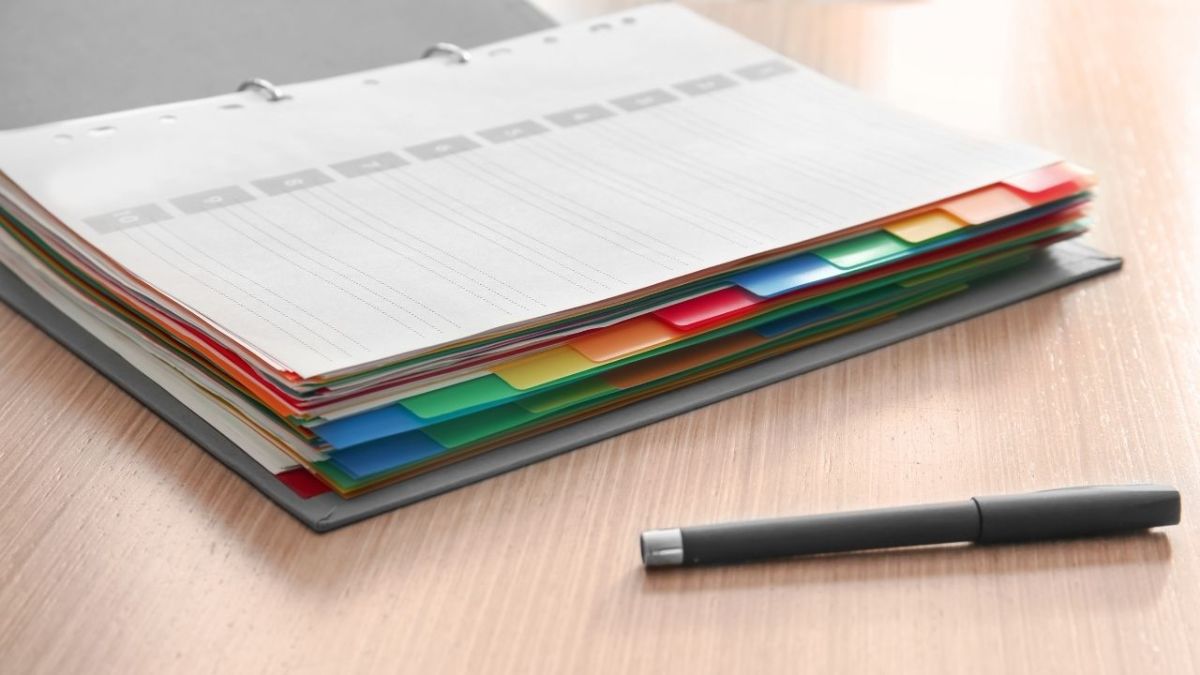
These include, for example:
- The numbers of family members
- Numbers of reliable friends and acquaintances
- Contact details of gas, water, and electricity suppliers
- Legal and private insurance
- Important contacts that are outside the "danger zone", i.e., outside your immediate environment
It is essential that not only you have this list, but that it is also distributed to family members and other partners. This way, all parties involved can stay in contact in case of an emergency.
8. Create pocket cards of important information
"You can't know everything, you just need to know where to find it."
This sentence contains a lot of truth.
How long ago was your last First Aid course? Could you still say exactly what to do in an emergency? Do you still have the Heimlich Maneuver or CPR techniques firmly in mind?
If not, that's absolutely not a problem. If you're not working in the medical field, you won't come into contact with it too often. So create small pocket cards that will provide you with just this information at the right moment.
To remind you: The Heimlich Maneuver is an often life-saving immediate measure applied in case of imminent suffocation. The correct grip is particularly important here: Heimlich Maneuver - DocCheck Flexikon.
For example, also note which medications help with which ailments, which alarm signals have which meaning, as well as emergency contacts.
All the information you might suddenly need will help you here.
9. Learn the skills you need to master in an emergency
In today's luxury, people are used to having everything done for them.
Hardly anything that our ancestors had to do with painstaking handwork still requires our active participation.
That's why you should learn exactly these skills again. These include things like:
- Create tools yourself (for example through carving, a wood hammer)
- Hunting and building traps
- Fishing and angling techniques
- Nature knowledge (which berries/plants/bushes are edible or otherwise useful? Read my comprehensive guide on emergency food)
- Principles of bushcrafting
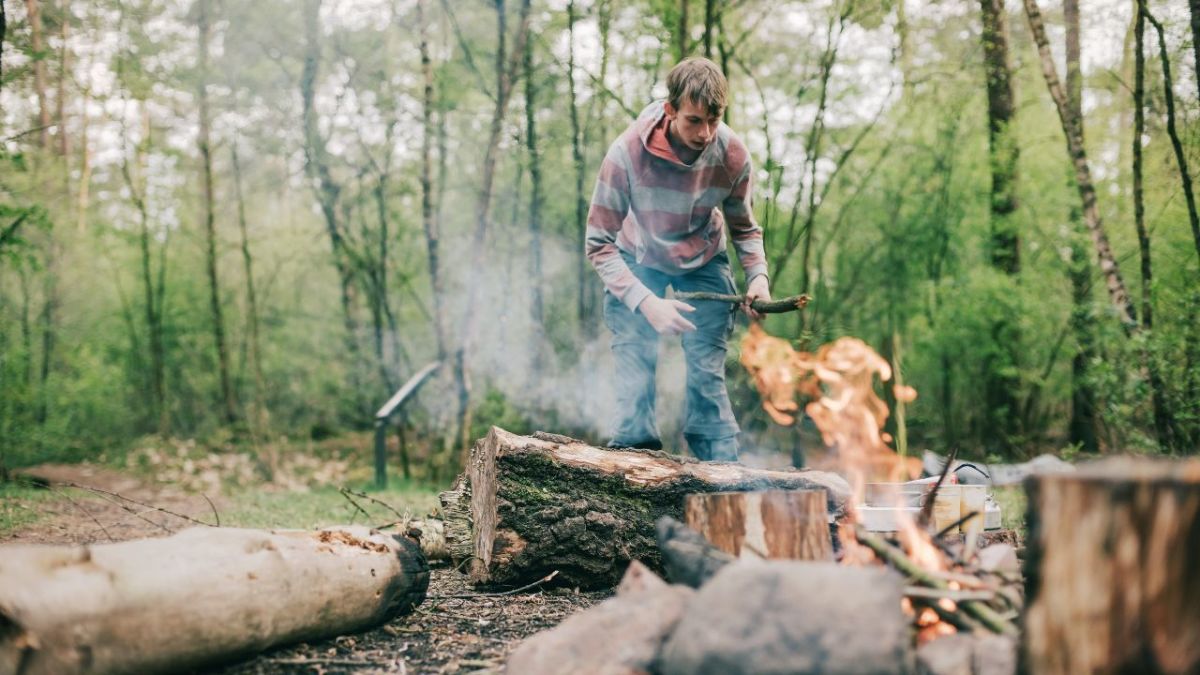
Imagine all your current luxuries were taken away, and you had no other choice but to survive in the wilderness.
All the preparation at home won't help you if you're unable to ensure your survival under adverse conditions outside your four walls.
10. Know your household's power supply
Can you tell where the fuses are located in your home? Where can gas and water be turned off? Are special tools required for that?
If you have no idea about this up to this point, it's time to catch up.
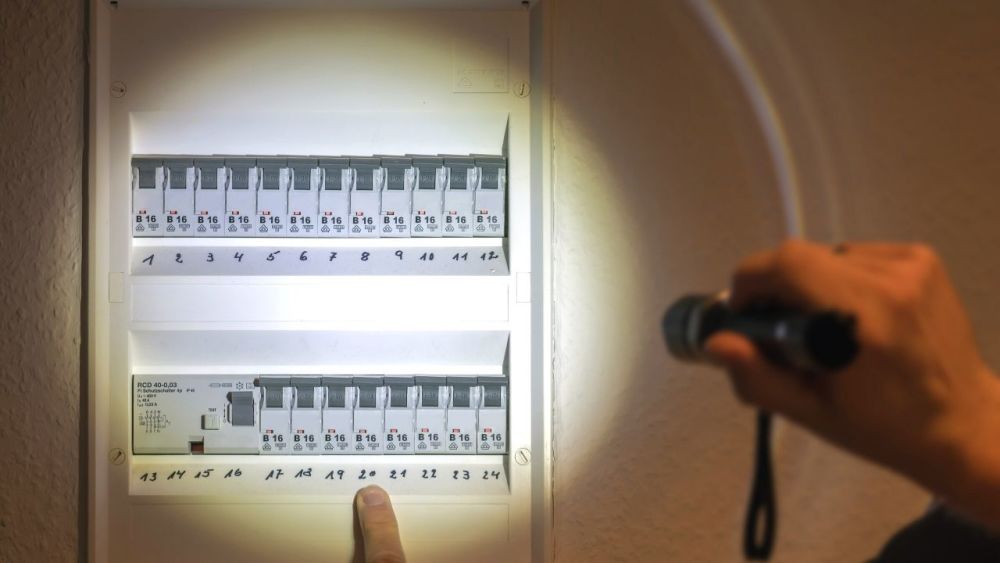
What resources does your house or apartment use for energy supply?
Again, the more you know, the better prepared you are for all eventualities.
To go along with that, you can equip yourself with small power banks (here's my buying guide with a top list) or with a solar generator such as the Jackery 1000. Even small solar panels (here's my buying guide) can help you bridge a blackout.
Also read
The best power station in the test - for camping, road trips, and power outages - Get power wherever and whenever you need it with a portable power station. We have tested the top power stations to find the best one.
11. Ensure the constant functionality of your security equipment
If you have an alarm system, surveillance cameras, smoke detectors, fire extinguishers, or other safety and fire protection equipment at home, you should ensure that everything remains functional.
So, check everything!
If necessary, change batteries or replace equipment. There is hardly anything worse than relying on your equipment in an emergency, which cannot fulfill its purpose.
So, ensure that all tools used always function.
12. Train and educate family members
Since you undoubtedly want to protect your loved ones as well, you should share your knowledge with them.
After all, they too should be able to withstand exceptional situations unscathed.
Practicing here means, for example, talking to your children about what they should do in an emergency. Conduct a small "practice alarm" and playfully practice all necessary procedures with them.
Where are the emergency exits or meeting points? What should be taken in case of escape? Which hiding places are suitable? The more your loved ones know, the better they can act.
13. Don't be led by fear
The last tip I have for you is perhaps the most important.
Even if you are preparing for exceptional situations, you should not be afraid of them day after day.
It is not uncommon for preppers to lose themselves in their preparations and stop living fulfilled lives.
Always take care of your physical and mental health so that you are ready for action in case of emergency.
This also means that you should not cause unnecessary stress through prepping, which could render you incapable of action afterward or even lead to panic.
Live consciously, stay realistic and well-prepared. Do not fall into a permanent state of alarm.
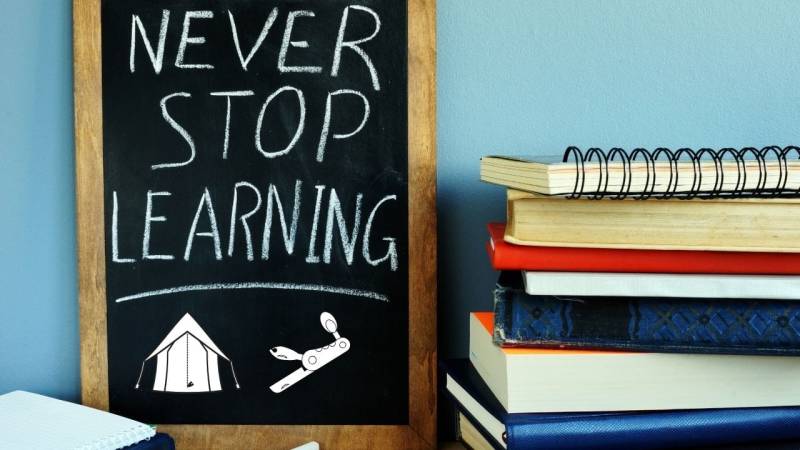
Conclusion: a red thread in prepping is essential
Especially at the beginning of your journey, prepping may seem like a flood of information and challenges.
Over time, however, you will find your way and know what is essential to you.
The points mentioned in the article are not meant to be a user manual that you have to follow compulsively.
Instead, they serve as a red thread that you can always orient yourself independently to.
You will find that the implementation differs greatly from prepper to prepper.
To find your way, you also have to walk it.
So start now, organize everything you need, and begin with the first 13 things a new prepper should do.


Author of the guide
Martin Gebhardt
Hey, I'm Martin. On my blog, you will learn the basics and numerous details about living in the wild. I think survival, bushcraft and the good life in nature are the keys to happiness. Find me here on Instagram or on YouTube. You can find more about my mission on the About Me page.
Was this guide helpful?
13 people found this guide helpful.
5.00 out of 5 points (13 Ratings)
Comments (0)
This post may contain affiliate links. So if you click on the links and make a purchase, I will receive a small commission at no additional cost to you. Click here, to learn more about it.



